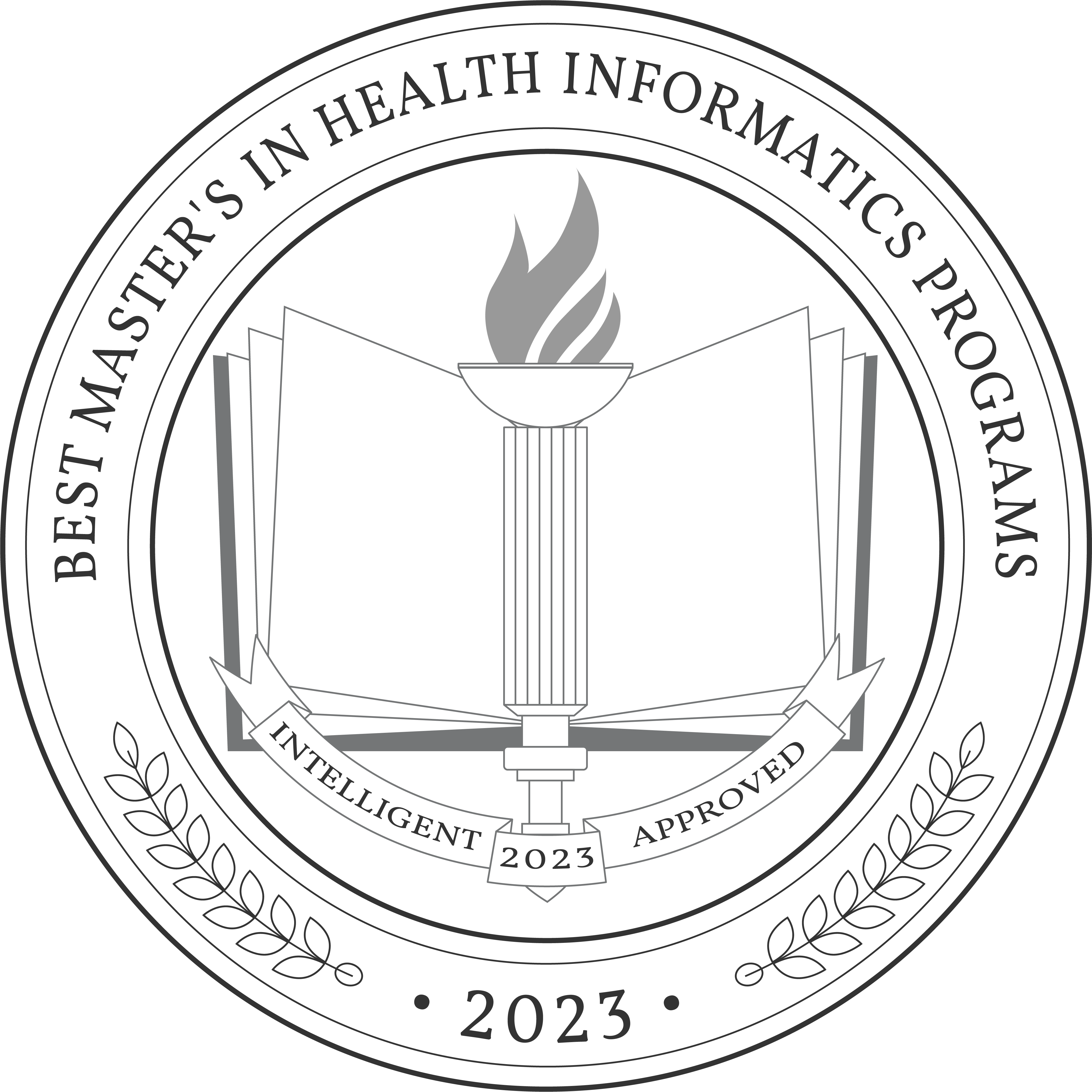Why This Matters
-
DEMAND FOR HEALTH SERVICE MANAGERS IS EXPECTED TO RISE BY 32%
Over 133,000 new jobs are expected to be created by 2029 due to an increased demand for health care services and professionals with knowledge of health information technology.
-
MEDICAL AND HEALTH SERVICE MANAGERS MAKE ABOUT $100,980 PER YEAR
The average salary for medical and health service managers is more than two times the average worker’s salary of $39,810.
-
29,000 MORE MEDICAL RECORD TECHNICIANS ARE NEEDED BY 2029
Demand for medical records and health information technicians is expected to grow by 8 percent over the next decade.
Our Research
Our list evaluates graduate-level programs in health informatics that prepare students for careers as health service managers, health information technicians, and chief medical information officers. Degrees offered include Master of Science in Health Care Informatics, Master of Science in Health Informatics, Master of Science in Medical Informatics, and Master of Science in Biomedical Informatics. Students can choose among on-campus, in-person, and hybrid learning formats.
Health informatics programs that uphold a high academic standard are recognized with national or regional accreditation. Schools on our list are accredited by national organizations such as the Commission on Accreditation for Health Informatics and Information Management Education (CAHIM). Other schools’ curricula have been recognized by regional accreditors such as the Southern Association of Colleges and Schools Commission on Colleges (SACSCOC).
We evaluated each program on the basis of flexibility, faculty, course strength, cost, and reputation. Then we calculated the Intelligent Score for each program on a scale from 0 to 100. For a more extensive explanation, check out Our Ranking Methodology.
- 67 hours to write this article
- 159 universities and colleges we assessed
- 211 education programs we compared
The Top 50 Master’s in Health Informatics Degree Programs

Discover More Options
What You Should Know About This Degree
When pursuing an advanced degree in the medical profession, it’s important to consider similar programs, such as the master of science in nursing in health care informatics (MSN) and master of health administration in health informatics (MHA). The MSN degree is designed for students who already hold a registered nurse (RN) certification and are interested in an advanced degree specializing in health information technology. MHA programs are focused on students who have a business background and are interested in leadership and administrative roles in the healthcare industry. Think about what role you would like to have in the medical field when determining which program is right for you.
Graduates may want to pursue additional certifications and licensure to demonstrate their expertise to potential employers. A Healthcare Information and Management Systems Society (HIMSS) certification can help give students a competitive edge in the relatively new health informatics field. There are two HIMSS certification programs, the Certified Associate in Healthcare Information and Management Systems (CAHIMS) and the Certified Professional in Healthcare Information and Management Systems (CPHIMS). CAHIMS certification is for new professionals in the healthcare industry, and the CPHIMS certification is for experienced health care information and management systems professionals.
What’s Next?
Here are a couple of questions to ask when considering a master’s in health informatics:
- Am I eligible for this program? Health informatics programs accept students from all educational backgrounds who hold a bachelor’s degree or equivalent. Previous coursework in computer science, health policy, and statistics is recommended. Some programs might require previous professional experience in the field, as well as a minimum GPA and Graduate Record Examination (GRE) score.
- How long does it take to complete this online degree? Most master’s programs in health informatics take two years of full-time study to complete. Students can expect to graduate with an advanced understanding of information systems and design. The programs on our list require 30 to 57 credits to graduate.
Application requirements and submission deadlines vary from program to program. Visit the admissions section of the school’s website to find detailed information about when to submit applications and which materials to include.
Consider how you will cover the costs of your graduate studies. Scholarships, work-study funds, grants, and other funding opportunities are available. Find out if you are eligible for government funding by submitting a Free Application for Federal Student Aid (FAFSA).